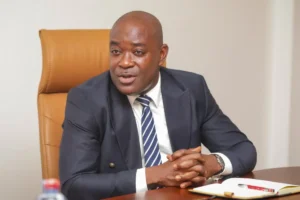The Ghana Tertiary Education
Commission (GTEC) has warned that all private universities that are not
chartered or initiated processes to receive charter would be closed by August
31 this year.
Professor Ahmed Jinapor Abdulai,
Acting Director-General of GTEC, said the decision was in line with the
Education Regulatory Bodies Act, 2020 (Act 1023), aimed at ensuring standards
and quality in Ghana’s tertiary education.
“I call on all stakeholders
within the private tertiary educational delivery sector required to charter to
take this exercise seriously since non-adherent institutions will be forced to
close by expiration of the window of application as captured in the law,” he
stated.
Prof. Abdulai was speaking at the
opening session of the ninth Association of West African Universities (AWAU)
Conference 2024 and 11th Annual General Meeting ongoing at the University of
Cape Coast (UCC).
The three-day conference is on
the theme: “Promoting quality tertiary education in West Africa through
collaboration, regional integration and technology.”
It has assembled top stakeholders
in the tertiary education space including chancellors, vice-chancellors,
registrars, and regulators from across Ghana, Nigeria, Benin, and other West
African countries to dialogue on the best approaches to standardise and enhance
quality education.
Prof. Abdulai noted that there
were 310 tertiary education institutions captured in the Commission’s database
of which 128 were private.
At the moment, he indicated the
Commission had received 77 applications seeking to charter, with 43
institutions ready, and 21 others to be ready to charter in two years.
However, he said some of the
institutions were in distress conditions and being recommended to shut down.
The Acting GTEC Director-General
averred that quality in tertiary education delivery was a necessity which could
best and easily be achieved by institutional collaborations, integration, and
adoption of technology.
He commended the management of
the various tertiary institutions in Ghana for their adherence to accreditation
which was a basic quality assurance in every institution.
“We believe that foundational
threshold for quality within tertiary education is whether an institution or
programme qualifies for a certain status represented as accreditation,” he
said.
“We believe collaboration,
regional integration and technology can be properly situated within the
spectrum of quality tertiary educational delivery when the minimum operational
standard for delivery is in place,” he added.
Professor Johnson Nyarko
Boampong, the Vice Chancellor of UCC and Chairman of AWAU, challenged
universities in the Sub-region to embrace technology in their quest to improve
the quality of higher education in response to demands of the 21st Century
world.
“The 21st Century is a
technology-driven age, and the recent covid-19 global pandemic has thought us
an important lesson about how technology continues to shape educational
outcomes both in conventional classroom settings and in the world of work,” he
said.
knowing the relevant technologies
to use has the potential to increase the quality of tertiary education, he
emphasised, adding that this helped lecturers, researchers, and institutional
leaders to make informed choices to bring about the required change in
teaching, research, and community services.
Prof Boampong underscored the
need for universities to strive to continuously improve the academic
environment as well as their contents to remain relevant in the ever-changing
and competitive global space.
He said continuous professional
learning was key to improving quality at all levels and urged institutions in
West Africa to be intentional about their curriculum.
Source: GNA

